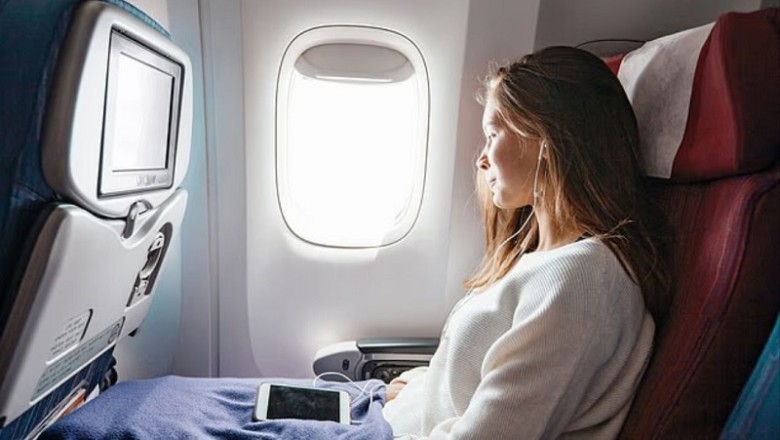
Woman Horrified After Opening Airline Blanket and Finding This Inside
The Unseen Risks
Traveling by air offers numerous amenities aimed at enhancing passenger comfort. Among these are the airline blankets—items that seem warm and cozy but might harbor unseen risks. Many fliers look forward to these small luxuries during long-haul flights, tucking them around their shoulders for warmth or draping them over their laps to catch some much-needed rest. However, a shocking revelation from travel expert LP Maurice raises significant concerns about their cleanliness.
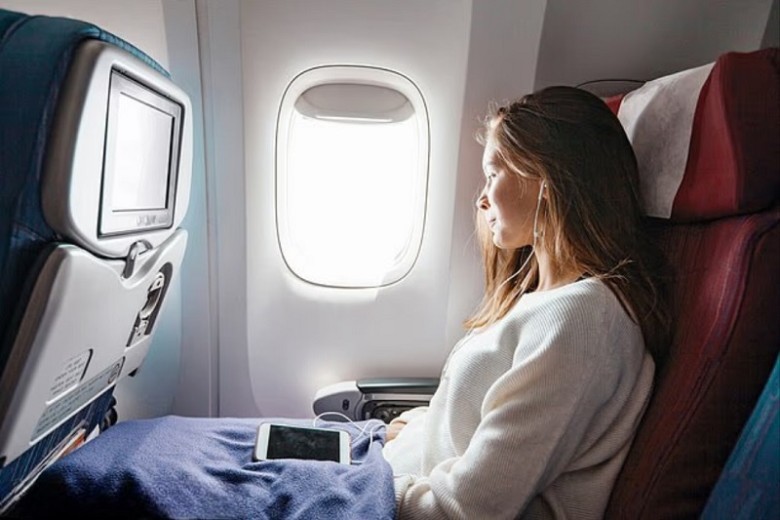
Maurice, who has extensive experience in industrial laundry management, warns that the blankets given out during flights might not be as hygienic as they appear. Passengers often use these blankets without a second thought, assuming that they are clean and sanitized. This carelessness could lead to the unexpected discomfort of health risks that many travelers are blissfully unaware of while snuggled up for a long flight.
The Expert's Warning
LP Maurice, now CEO of Busbud, has made it his mission to inform travelers about the potential hazards associated with using airline blankets. His expertise in the operational side of airline hygiene has uncovered alarming truths that need to be addressed. According to Maurice, the act of offering complimentary blankets may not be as innocent and comforting as it seems.
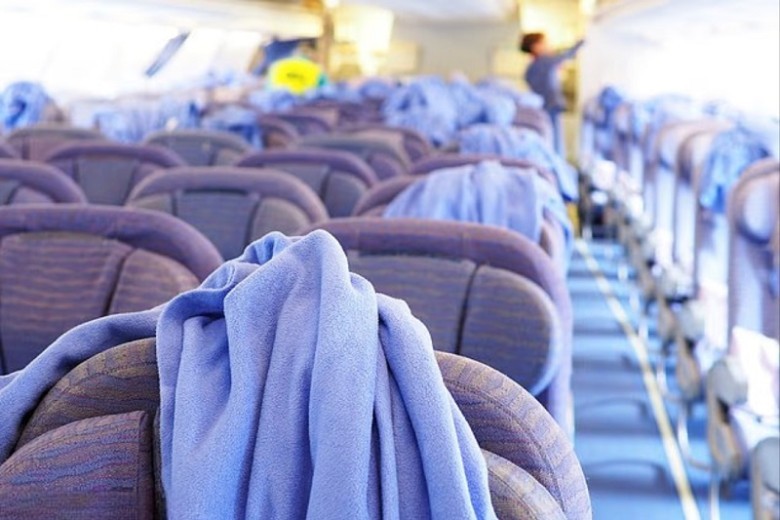
He emphasizes that passengers should reconsider using these blankets altogether. Despite their initial appeal, they may hide an array of germs or allergens. This cautionary tale not only serves as a warning for individuals but also calls for a re-evaluation of hygiene protocols within airlines. As more travelers become aware of these issues, there's likely to be a push for airlines to revisit their sanitation practices and prioritize passenger safety.
A Surprising Find
Travel advisor Georgia Fowkes experienced firsthand the horrors that could proliferate within airline blankets. Expecting nothing more than a warm covering to aid her sleep, she abruptly found herself confronted with a shocking truth. Upon opening a "sealed" airline blanket, she discovered long hairs nestled in the folds, leaving her horrified and questioning the cleanliness of other onboard amenities as well.
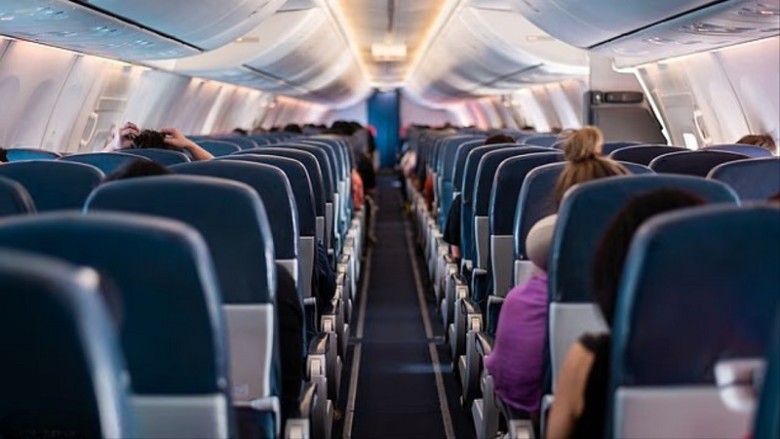
What she found next pushed her discomfort to new levels. Alongside the long hairs, Fowkes noticed foundation stains and a faint, suspicious smell reminiscent of shampoo. Such findings indicate a severe lapse in hygiene standards that airlines should be upholding. Fowkes’s encounter serves as a stark reminder that what we often take for granted may be harboring unseen dangers, compelling passengers to consult their intuition and remain vigilant about their surroundings during flights.
Signs of Neglect
In her unsettling discovery, Georgia Fowkes highlighted several indicators that welcomed her skepticism regarding the cleanliness of airline blankets. The presence of long hairs, makeup smudges on fabric, and unusual smells signal an alarming neglect of hygiene protocols commonly expected aboard commercial flights. These observations raise serious questions about the sanitary measures imposed by airlines and whether they are genuinely committed to passenger well-being.
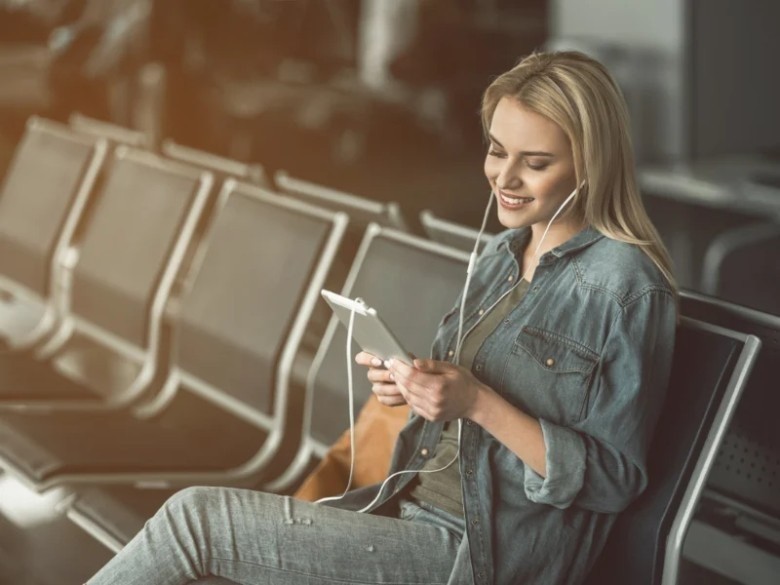
As her experience illustrates, the apparent comfort of airplane blankets may come at a hidden cost. Passengers resting in close quarters with unwashed blankets risk exposure to various contaminants, allergens, and bacteria that could severely impact their health. Such findings should prompt all travelers to exercise caution and consider alternative options to ensure their hygiene during air travel, pushing forth a burgeoning dialogue about cleanliness in the airline industry.
The Truth Behind The Wrapping
While traveling, many flyers are greeted with tightly wrapped airline blankets, lending them an appearance of freshness. According to LP Maurice, a tight plastic envelope typically indicates that the blanket was just washed, ready for immediate use. However, the realities of flight operations may differ significantly, particularly when tight schedules force airline crews into hasty practices that compromise passenger health.
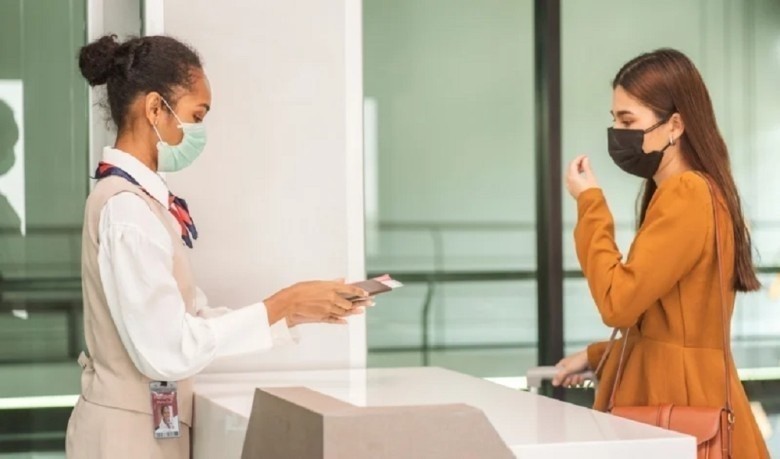
Maurice explains that if a flight lands late and turn-around time is short, the crew may be compelled to reassign blankets that appear unutilized. This compromises the basic sanitation expectations that travelers assume when they board an aircraft. Instead of receiving freshly cleaned items, passengers instead encounter reused blankets that might have been folded back onto seats in a rush, leaving many to unknowingly embrace unclean items without proper knowledge of their origins.
The Airline Dilemma
As travelers become privy to these unsettling truths surrounding airline blankets, a pivotal dilemma emerges: should they risk using these blankets, or should they fend off the cabin chill without them? As comfort often dictates choices during long flights, many passengers may find themselves grappling with this decision amid newfound awareness.
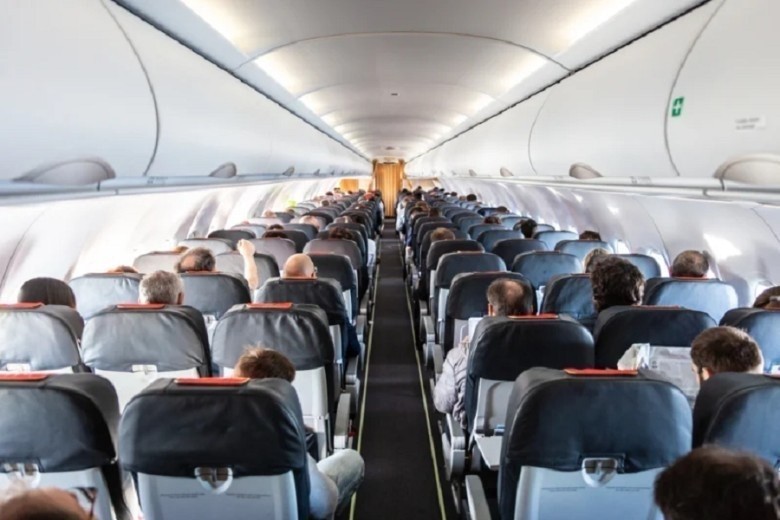
LP Maurice clearly outlines an escalating concern— the blankets passengers sometimes graciously accept may do more harm than good. A growing audience of travelers is now conscious of the potential danger posed by these amenities, prompting a cultural shift reconsidering the small comforts that come at possible personal costs. As these voices grow louder, a call for airlines to better their practices begs to be answered, aligning comfort with health and safety during flights.
Understanding the Turning Process
To appreciate the risks involved with airline blankets, understanding the whole process of preparing aircraft is essential. The routine involves rolling the linens off planes and sending them directly to contractors who wash them at temperatures between 60°C and 90°C with peroxide. The washing procedure is supposed to be comprehensive, designed to ensure that blankets are clean and free from contaminants, ideally to be dried on high heat before being rewrapped for use.
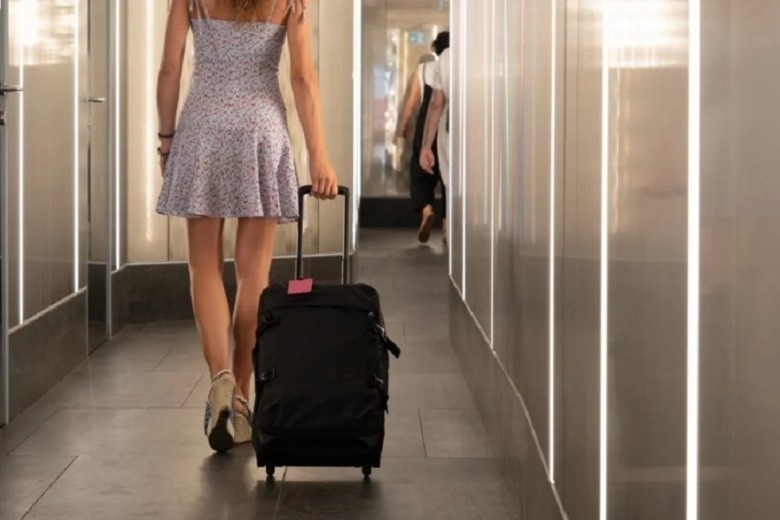
However, the reality alters drastically during busy travel periods. Maurice explains that if a flight arrives late, airline crews may feel pressured to keep blankets that seem unused rather than risk delayed departures. In these scenarios, what appears pristine may instead harbor bacteria or contaminants, posing the inevitable dilemma of accepting potentially unhygienic items while traveling.
The Cold Hard Facts
The cold hard facts regarding hygiene are indeed sobering. LP Maurice shared alarming statistics, revealing that only a small percentage of airline blankets get properly cleaned before being reused. In some busy airport hubs, as little as one-fifth of the blankets offered on economy flights undergo a wash, leaving the rest to be folded and reused unless visibly soiled.

This eye-opening information serves as a wake-up call for travelers. It underscores why passengers must prioritize awareness about the cleanliness of the blankets they might use during flights. While the allure of such amenities is tempting, understanding the potential risks associated with them leads to more informed choices, as many fliers gain valuable insight into the workings of airline hygiene.
A Growing Concern
As the conversation surrounding airline cleanliness gains momentum, a much-needed awareness about hygiene practices among airlines emerges. The community of travelers is increasingly vocal about their concerns, sharing their experiences, and advocating for better standards. Social media channels have transformed into platforms for raising awareness, where individuals can share their shocking stories about airlines' negligence regarding cleanliness.

The rising tide of concern about airline amenities has prompted a movement among travelers. They are urging airlines to acknowledge and address the rampant hygiene issues present on flights. This elevated awareness serves as both a clarion call for improvement and a step toward elevating personal health measures critically in the travel industry.
How to Stay Safe While Traveling
As the spotlight on hygiene intensifies, experts are stepping up to help travelers navigate potential risks on flights. One major recommendation is opting out of using airline blankets altogether and instead considering bringing personal travel blankets or cozy shawls. Portable and easy to pack, these alternatives not only offer travelers peace of mind but also ensure that they are responsible for their personal hygiene and comfort during air travel.
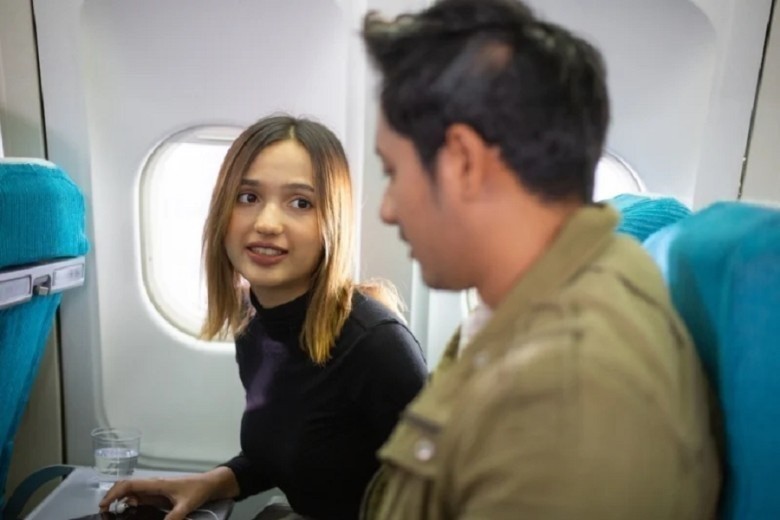
This proactive approach allows passengers to minimize their exposure to unwanted germs while still enjoying warmth and comfort during flights. By empowering themselves with personal solutions, travelers can take charge of their health and bolster their comfort, ushering in a new wave of awareness and self-care within the travel community.
Pack Wisely
When preparing for air travel, many passengers focus on clothing and essentials while overlooking the importance of comfort items. As concerns about airline blankets grow, it becomes essential to pack smart for the journey ahead. Instead of relying on questionable free items, consider investing in a quality, compact travel blanket designed for flights.
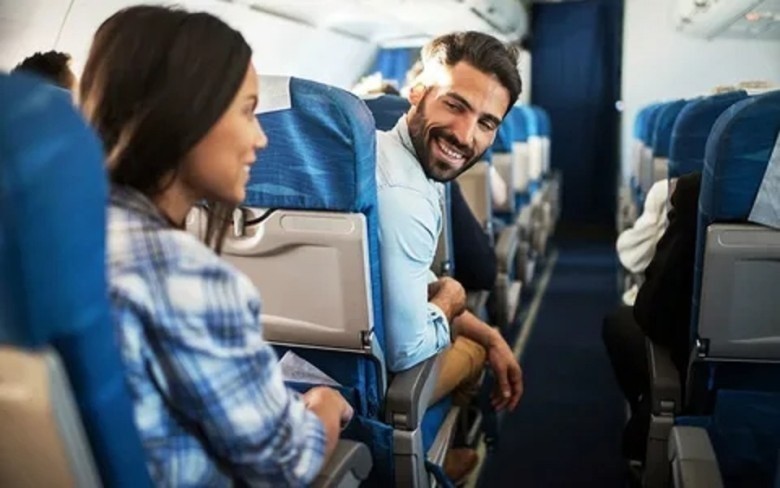
Such items can provide a personal solution to the issues raised regarding hygiene. Lightweight and efficient, personal blankets easily fit into carry-on luggage, eliminating fears of contamination from shared airline supplies. By making informed decisions about what to bring onboard, travelers are armed to foster a more enjoyable experience while ensuring their health remains the priority throughout their flight.
Encouraging Airlines to Improve
A growing chorus of voices among travelers is increasingly demanding change regarding the hygiene practices implemented by airlines. With rising awareness about cleanliness during flights, passengers are not only identifying issues, but actively seeking improvements in airline operations. Social media and various forums have transformed into platforms for voicing opinions and driving home the urgency of these concerns.
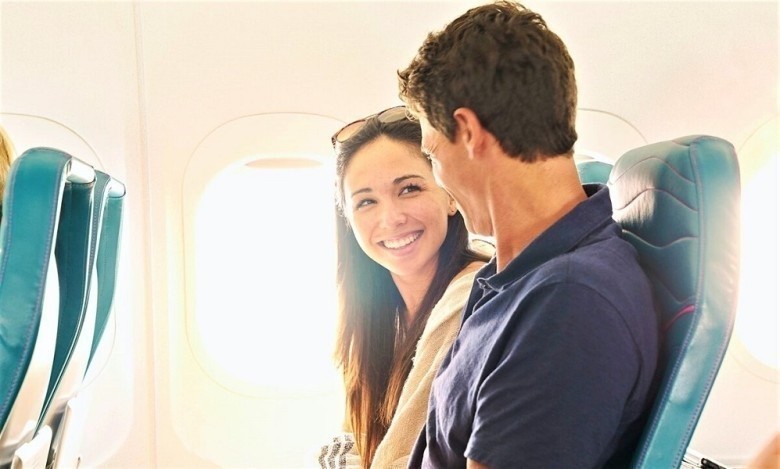
As travelers rally for better hygiene protocols, airlines must recognize the growing sentiments of their customer base. Sustained outrage can prompt substantive dialogue, encouraging airlines to not only address issues but also implement better practices for the future. Ultimately, embracing passenger feedback can serve as a vital stepping stone in fostering a safer and healthier travel experience for all.
Trendy Travel Gear
The growing awareness of cleanliness in air travel has resulted in an emerging market for innovative travel gear that prioritizes hygiene. Shrewd travelers are now seeking products designed specifically to combat hygiene issues commonly faced during flights. Personal, portable travel blankets and fabric sanitizers are becoming increasingly popular options for health-conscious passengers who want an added layer of safety while flying.
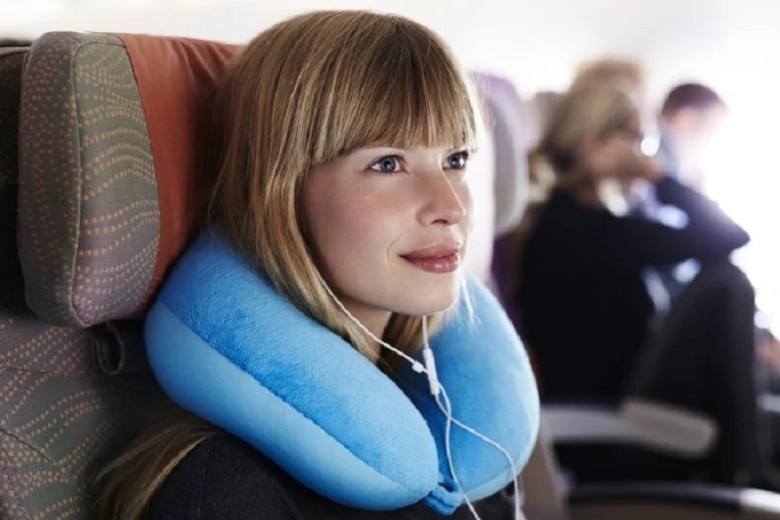
This surge in demand for personal hygiene products highlights the shift towards more conscientious traveling. As travelers gravitate toward items that cater to their safety, airlines may face pressure to adapt their practices, promoting healthy hygiene standards and fostering an environment focused on passenger well-being. This trend signals a significant shift in travel culture emphasizing both comfort and health.
Share Your Story
A pivotal change in the dialogue surrounding airline cleanliness has emerged thanks to social media, allowing travelers to share their experiences and communicate vital information. Through storytelling, passengers can raise awareness about hygiene issues encountered during flights, joining forces to cultivate a strong sense of community focused on safer travel. With countless horror stories making the rounds, sharing such insights serves to educate fellow travelers and arm them with useful knowledge.
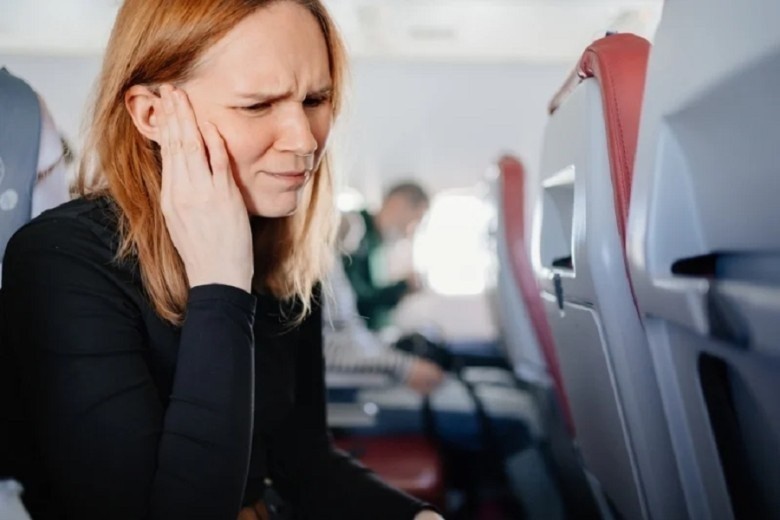
Social media has transformed how passengers communicate, granting them access to platforms where they can air grievances and discuss their airline experiences. As travelers unite to share their stories, this community can foster a proactive dialogue focused on safety, leading to changes that meet the vital expectations of cleanliness and hygiene in air travel.
What's Next in Airline Amenities?
As discussions unfold about the importance of cleanliness and hygiene, airlines find themselves in a precarious position: responding to passengers' rising expectations. In an age where health concerns remain at paramount importance, the expectation for high-standard cleanliness is likely to shape the future of airline amenities. As travelers increasingly advocate for individualized options regarding their safety, airlines may evolve to offer customizable amenities that cater to health and sanitation preferences.
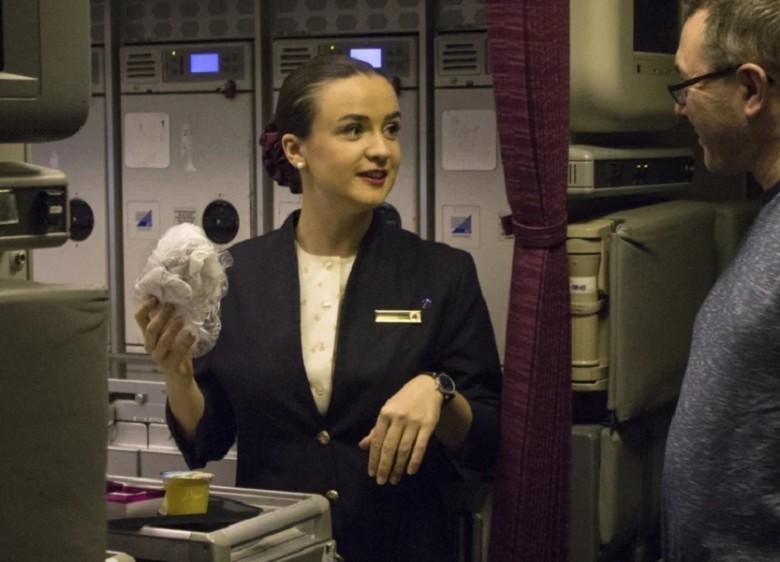
This transformation could redefine the travel experience by allowing fliers to select items based on their cleanliness standards. By implementing such innovations, airlines could enhance passenger trust and safety, paving the way for a culture that prioritizes hygiene during air travel, and addressing the rising demand for greater control over passenger health.
The Safety of Personal Items
While focusing on the cleanliness of the airline-provided blankets, it’s crucial to evaluate the safety of all personal items brought onboard. Recognizing the risks of sharing communal blankets and pillows can empower travelers to make informed choices about their belongings. Avoiding unsanitized items and opting for personal products can significantly minimize exposure to germs that might be present on airplane surfaces.

By prioritizing personal safety, travelers can substantially safeguard their health while navigating the air travel experience. With awareness raised about potential contamination, this emphasis on individual responsibility helps passengers feel more in control of their well-being and aids in cultivating safer practices while flying. Thus, the conscientious traveler takes every precaution to prioritize personal health on their journeys.
The Role of Education
The educational aspect of airline hygiene cannot be overstated. As more travelers become informed of potential cleanliness issues, airlines have an opportunity to regain passenger trust through transparent practices. By sharing information about cleaning procedures and laundering methods, airlines could alleviate the concerns of many fliers and demonstrate their commitment to hygiene and safety.
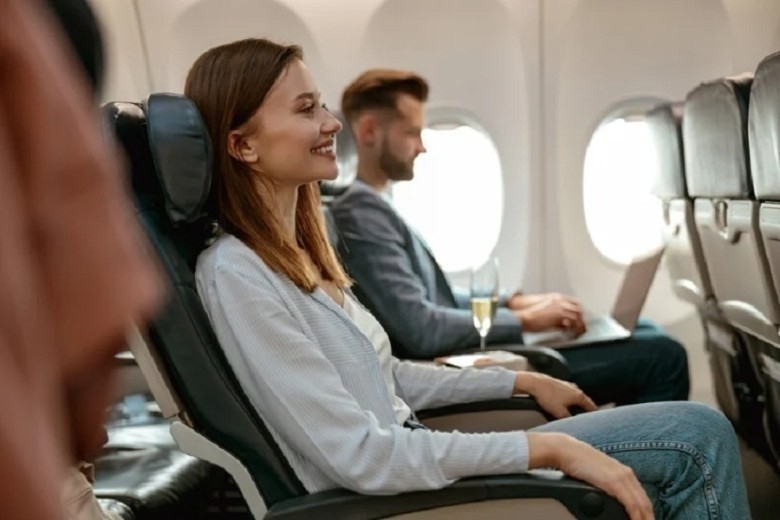
Transparent communication about sanitation efforts empowers travelers to make informed choices. Knowing how often blankets are washed and confirming operational cleanliness allows passengers to feel secure while flying. If airlines prioritize clarity and transparency, they can build strong relationships with their customers, promoting a culture of safety that matches growing traveler expectations for cleanliness in air travel.
The Future of Air Travel
Passive acceptance of hygiene practices is no longer an option for travelers. Awareness surrounding cleanliness has sparked a movement that demands better standards in the airline industry. Passengers are increasingly vocal, and their insistence on safety and sanitation could redefine the nature of future air travel. As health becomes a primary concern, a commitment to transparent hygiene practices could set airlines apart.
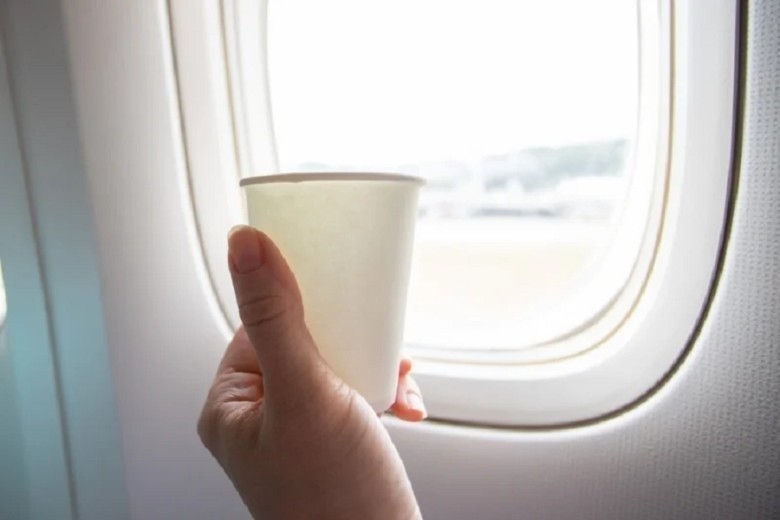
This growing awareness ushers in an era where travelers hold airlines accountable for their sanitation protocols. The rising voices of conscientious fliers may influence future policies, leading to cleaner practices and better passenger experiences. By adapting to traveler needs, airlines can demonstrate their dedication to passenger health and well-being, revolutionizing the travel industry for generations to come.
The Power of Feedback
Travelers are encouraged to voice their opinions, and the power of feedback has never been more significant in influencing airline standards. As passengers reconcile their expectations for cleanliness, they have the means to inform airlines about their experiences through reviews, surveys, and social media interactions. By articulating their concerns and sharing what needs improvement, passengers can compel airlines to take the necessary steps toward higher hygiene standards.

This direct feedback serves not only as a gauge for airlines but also as a valuable tool for passengers looking to affect change. The expectation for cleanliness requires active dialogue between travelers and airlines; thus, fostering a culture where passenger voices matter may drive much-needed advancements in onboard hygiene practices for the future.
The Experience of Frequent Flyers
Frequent flyers stand at high risk when it comes to cleanliness during their travels. Those who often travel by air for business or leisure may encounter various hygiene-related challenges, especially with common airline amenities like blankets. The accumulation of risks poses a pressing need for regular fliers to remain alert about their surroundings and practices.
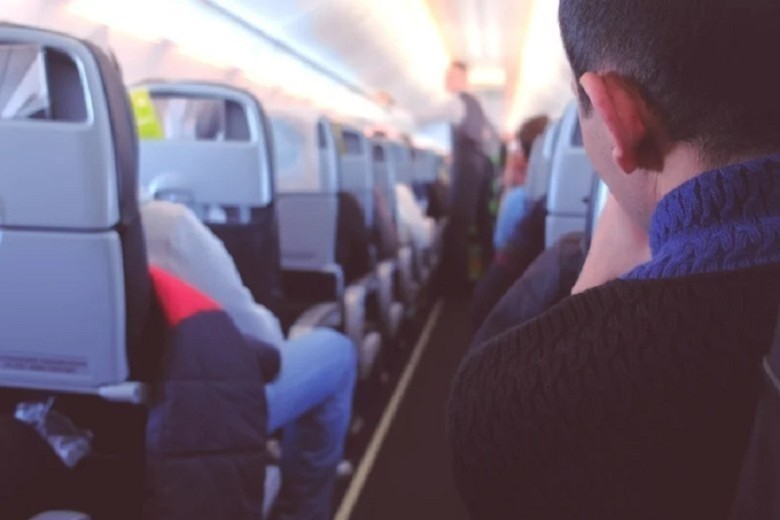
As seasoned travelers frequently experience the discomfort of crowded cabins, the possibility of encountering unclean blankets and pillows can cause considerable concern, making it vital for them to adopt safe hygiene measures. Frequent fliers must stay educated about airline protocols and prioritize health and safety to ensure an enjoyable travel experience. Their insights could ultimately pave the way for enhanced standards in hygiene throughout the industry.
Instant Gratification vs. Health
The desire for instant comfort on flights often battles against the need for health and safety. While free airline blankets appear to be the ultimate solution for warmth, travelers must recognize and evaluate the potential risks behind using them. Awareness of health concerns associated with such amenities is crucial, prompting travelers to weigh the immediate gratification against the longer-lasting implications for their well-being.
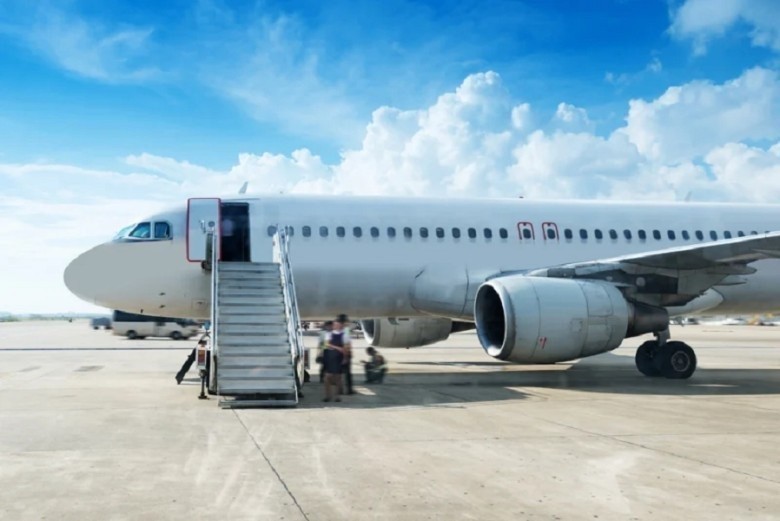
This balance invites all flyers to reconsider their reliance on airline-provided items, encouraging them to explore alternative solutions that prioritize their health. The culture of air travel should evolve to focus more on health standards while acknowledging that comfort may come with risks. Mindful choices will not only revolutionize travel experiences but ensure that passengers can journey safely without compromising their health.
Setting New Standards
The need for new industry standards in airline cleanliness is glaringly evident in the wake of rising awareness about hygiene practices. Airlines are primed for change as more travelers advocate for higher expectations. These patterns highlight the necessity of aligning operational practices with passenger health and safety through enhanced sanitary measures that elevate overall travel experiences.
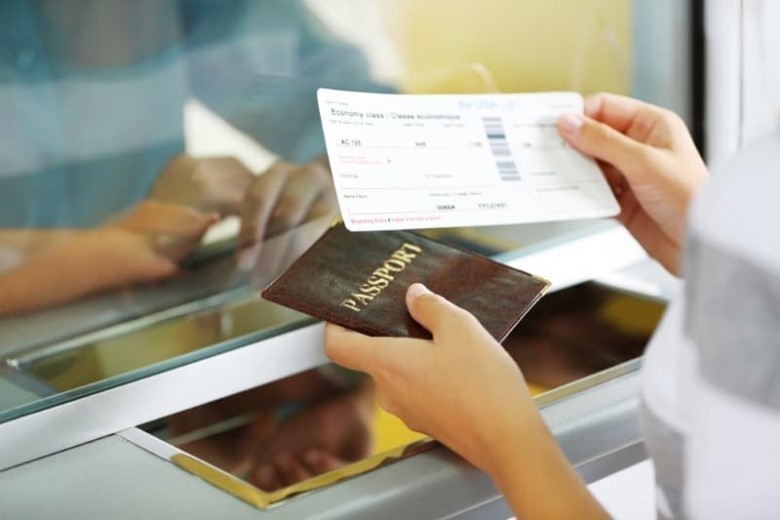
By proactively adopting and communicating hygiene standards, airlines can position themselves successfully amidst this changing landscape. The emergence of these new standards rests heavily on the collective plea of travelers urging for improved safety. Consequently, a commitment to cleanliness can create lasting relationships built on trust and elevate the overall travel experience as airlines respond to growing expectations.
Addressing the Issue Head-On
Addressing hygiene concerns in the airline industry head-on encourages proactive improvement. Airlines must engage directly with passengers regarding cleanliness practices to foster trust and transparency. These avenues not only enable airlines to rectify issues highlighted in passenger stories but also promote direct communication about steps taken toward sanitation improvements.
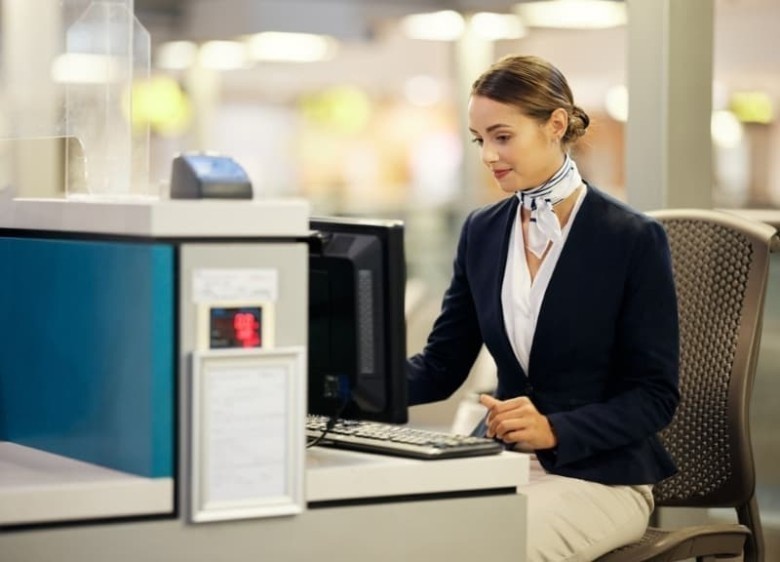
Open dialogue with travelers provides a platform for airlines to demonstrate their commitment to safety. By showcasing enhanced cleaning protocols and other strategic changes, they can dissolve passenger concerns and strengthen loyalty. The responsibility falls on airlines to reassure passengers that their safety is a priority, ultimately working collaboratively toward enhanced health measures and improved flying experiences for everyone.
Healthier Traveling Culture
The growing discourse on airline cleanliness signals a vital cultural shift toward health-conscious travel. As travelers demand better practices, the expectation for a clear commitment to personal safety reinforces a focus on healthy flying experiences. Increased awareness and collective advocacy can prompt a re-evaluation of airline culture regarding cleanliness, encouraging practices that prioritize passenger well-being.

This growing demand for accountability underscores how the industry must evolve to meet changing traveler expectations. A healthier traveling culture emphasizes the importance of safety as a driver of customer satisfaction. As this shift gains momentum, passengers can look forward to a new era of air travel where cleanliness is proudly prioritized, ensuring safe and enjoyable journeys for all.
A Personal Connection
The psychological aspect of air travel often revolves around comfort, but personal connections also illuminate the journey. Sharing individual experiences bonds travelers and fosters a sense of community among those advocating for better hygiene. Horror stories like Georgia Fowkes highlight that experiences are collectively woven into a larger narrative that compels travelers to unite for critical change.
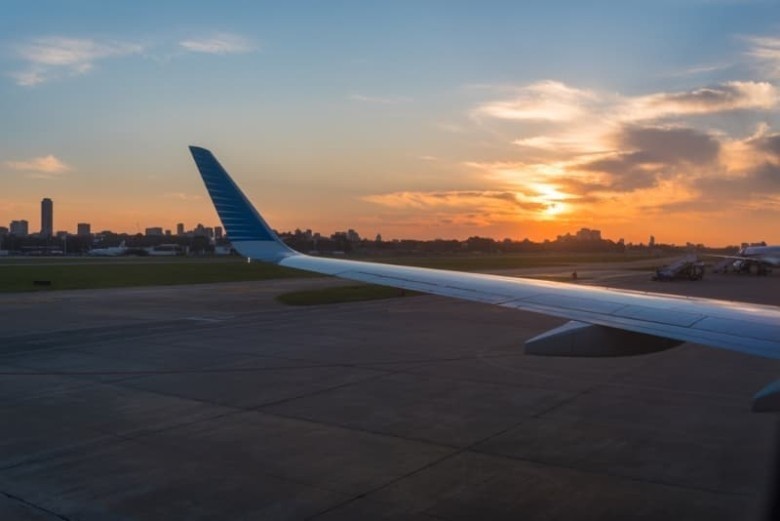
The act of connecting with fellow travelers through shared knowledge not only raises awareness but also empowers individuals to take action. By collaborating and supporting each other, passengers can emphasize the importance of safety and inspire each other to advocate for cleanliness across the board. This collective journey can create a safer, more accountable environment in air travel where communal well-being thrives.
Personal Accountability
Travelers must recognize their role in personal accountability regarding health and hygiene. The rising awareness around airline blanket cleanliness demonstrates the need for individuals to take charge of their safety during flights. Passengers are encouraged to make safer choices when it comes to using shared amenities, consciously opting for alternatives that align with their hygiene preferences.
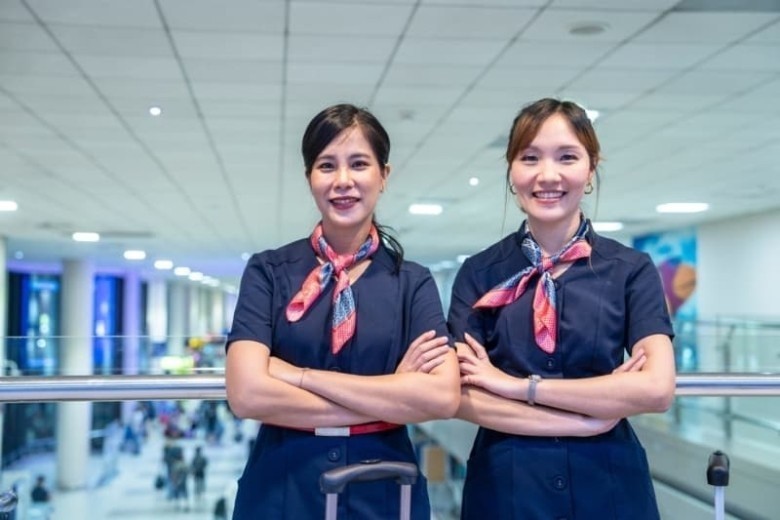
By embracing the need for personal responsibility, travelers empower themselves to navigate air travel confidently. The conversation surrounding hygiene is evolving, demanding that both passengers and airlines work together to make flying safer and healthier. Keeping vigilant and making informed decisions brings camaraderie among travelers, ensuring healthier flying experiences that benefit everyone.
The Psychology of Comfort
The psychology of seeking comfort during travel plays a vital role in passenger behavior. Travelers typically look to airline blankets for solace during long flights, unaware of the potential risks. However, the growing knowledge of hygiene issues has triggered a shift in perception, making passengers reconsider how they view familiar amenities.
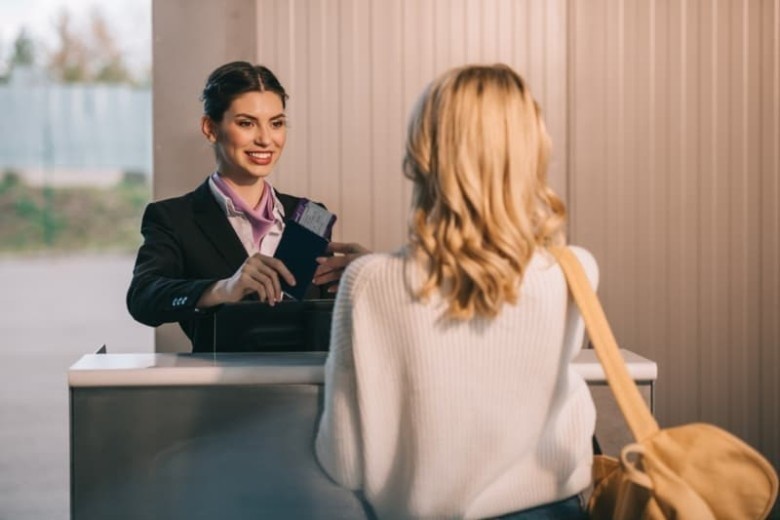
Understanding that comforts like airline blankets may harbor germs pushes travelers to explore safer alternatives that meet their needs without jeopardizing their health. As the discussion about hygiene and safety develops, travelers will need to adjust their expectations and consider the impact of their choices regarding comfort while aboard. This evolution encourages a deeper acknowledgment of how airline practices directly affect their overall travel experience.
Embracing Change
The newfound awareness of airline hygiene presents a crucial opportunity for embracing change in the travel industry. As travelers call for better cleanliness practices, they also champion a more proactive approach to maintaining personal health. By going beyond passive acceptance of current practices, passengers can drive the demand for airlines to adopt elevated sanitary measures and promote a healthier travel environment.
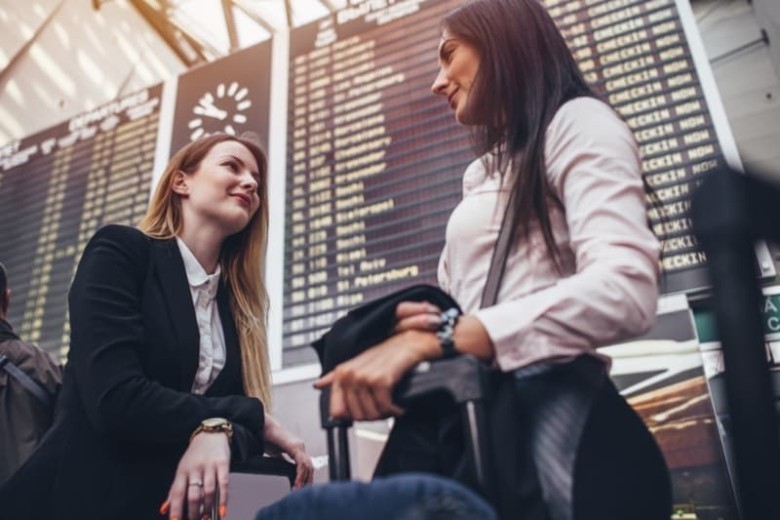
Although change can prompt discomfort in the beginning, it is essential for public health to prioritize cleanliness and safety while flying. Travelers are empowered by their collective voices, ensuring their concerns are heard, and advocating for better practices. As individuals become more attuned to their surroundings, they pave the way for meaningful advancements in the industry that will benefit future passengers.
A Call for Better Hygiene Practices
The resounding message ringing through the travel community is clear: airlines must adopt better hygiene practices to safeguard passenger health. The conversation surrounding airline blankets and the potential dangers of sharing community amenities has stirred considerable concern. The need for clean and sanitized items emerges as essential for the basic expectations travelers rightfully have while aboard a flight.
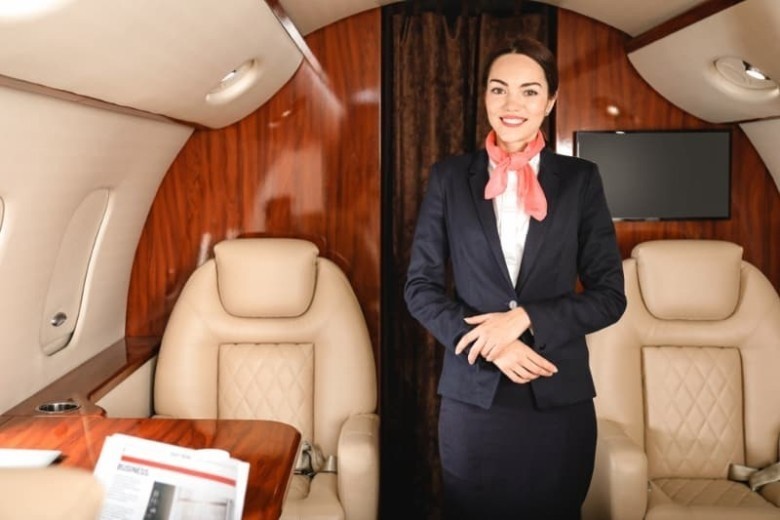
In unison, passengers are calling for change, demanding that airlines implement mandatory cleaning protocols and establish clear communication about their practices. The collective outcry from travelers serves as a critical push for reform meant to bridge the gap between comfort and safety. Prioritizing passenger health not only elevates the travel experience but establishes a foundation for lasting improvements across the industry.
The Ripple Effect
The ripple effect of increased awareness about airline cleanliness prompts broader discussions about hygiene standards. As travelers share their experiences and advocate for better practices, airlines may be inspired to rethink not only their blanket protocols but also other safety measures, including food hygiene and general cabin upkeep. This pattern demonstrates the evolving expectations of travelers, compelling the industry to confront its current practices and improve passenger experiences across the board.
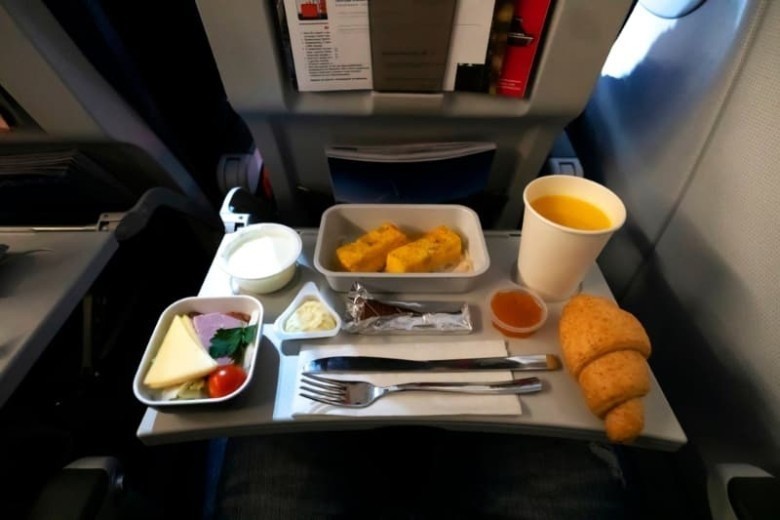
By uniting in the call for change, travelers drive airlines to examine how they operate and adjust accordingly. The momentum garnered from these conversations enhances public health standards in the aviation sector, leading to an environment where cleanliness and safety are at the forefront of the travel experience.
The Age of Conscious Traveling
As the demands for cleanliness and safety rise, we are witnessing the onset of the age of conscious traveling. This era emphasizes the necessity for health and safety standards to reign supreme throughout air travel. Today's travelers are more discerning and insightful about their choices; they expect airlines to uphold high hygiene standards while providing comfort and convenience during their journeys.
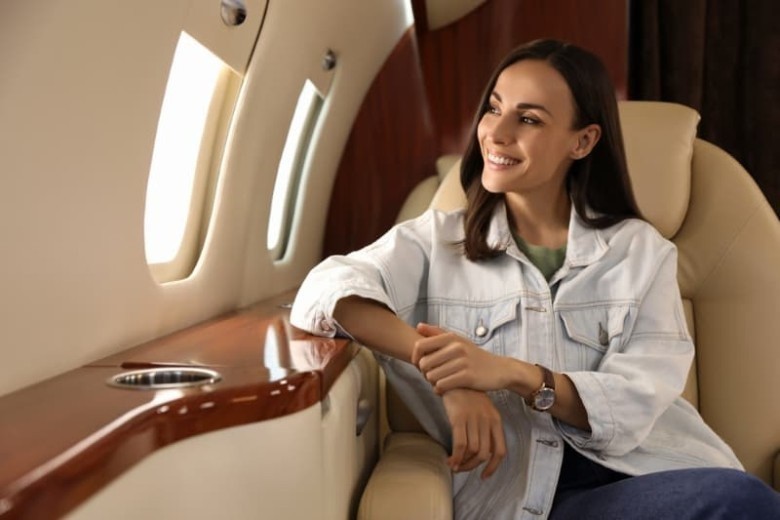
In this evolving landscape, travelers are reshaping what it means to fly by advocating for safer policies and practices. Their voices propel the discussion surrounding cleanliness and hygiene in the airline industry, encouraging the shift toward a more responsible approach to air travel that prioritizes the health of every passenger.
Cultivating New Habits
As awareness surrounding cleanliness rises, cultivating good hygiene habits becomes essential for travelers. Engaging in open conversations about airline cleanliness, challenging traditional comforts, and making proactive choices will become second nature for many. Travelers will likely display heightened vigilance concerning their surroundings, taking extra precautions to minimize risks while on flights.
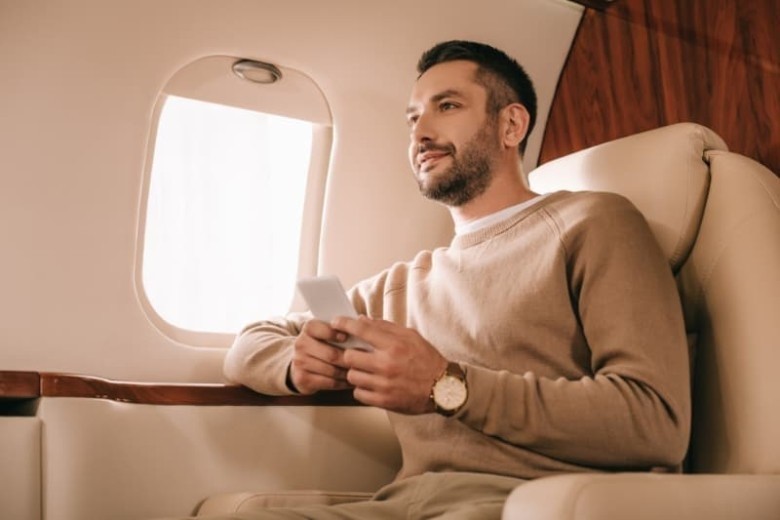
Assenting to advocacy for better practices among airlines encourages a healthier approach to travel. As personal habits evolve and conscientious choices become more common, the travel community can foster a culture focused on safety and health. This collective movement will guide individual and corporate behavior alike, prioritizing sanitary practices as a critical component of air travel.
Seeking Transparency
As concerns regarding hygiene gain traction, the demand for transparency from airlines is paramount. Passengers rightfully expect clarity regarding cleaning protocols and operational procedures that directly impact their health. Airlines can foster trust by openly sharing their washing methods, safety measures, and efforts to ensure cleanliness throughout the travel experience.
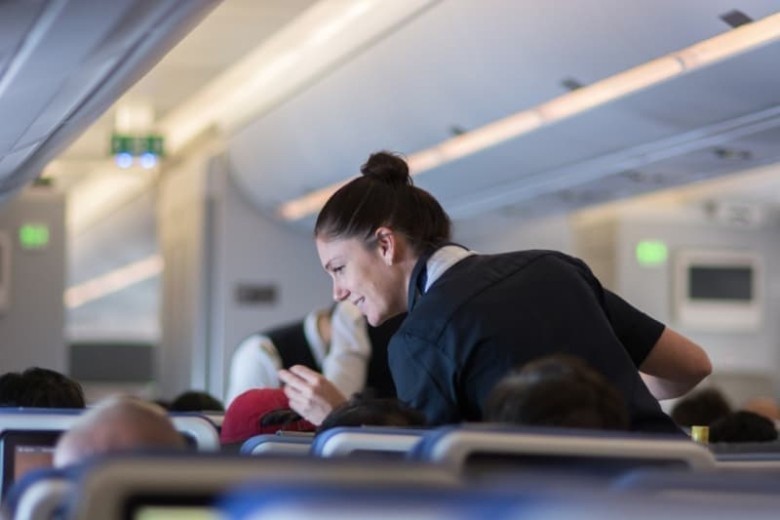
This transparency not only empowers passengers with valuable knowledge about their surroundings but also reinforces the idea that airlines are committed to their health. By fostering direct communication regarding cleanliness measures, airlines can address traveler anxieties, resulting in improved relations and more satisfied customers who are reassured that their well-being is a top priority.
Accountability from Airlines
Passengers are in a position to hold airlines accountable for cleanliness practices. The growing insistence on hygiene encourages travelers to become active participants in advocating for better operational standards. By sharing their experiences and voicing concerns regarding cleanliness, passengers compel airlines to reassess their policies to align with public expectations.
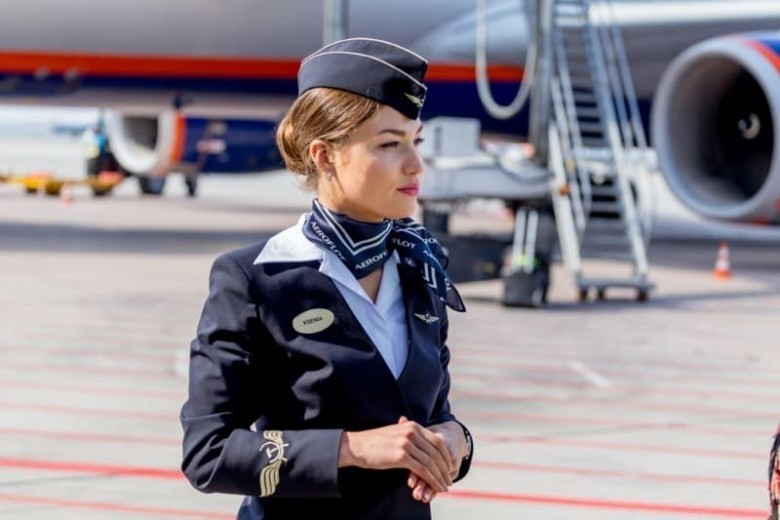
This accountability is crucial in shaping a travel culture where personal health is prioritized. Open conversations and collective action can influence significant changes within airlines regarding their practices, ensuring that passenger safety is the number one priority when creating a positive flying experience for all. Ultimately, fostering strong accountability fosters a sense of shared responsibility in creating safer traveling experiences.
The Road Ahead
The journey toward implementing cleaner practices in the airline industry is only beginning. The rising awareness regarding cleanliness in air travel calls upon airlines to change their operations fundamentally. By prioritizing hygiene and elevating their standards, airlines can build trust in an environment where passengers express concerns.

A combined effort for better practices coupled with increased consumer awareness is sure to reshape the future of travel. Together, empowered travelers can push airlines to respond effectively to rising expectations while ensuring that every flying experience holds health and safety as fundamental values, creating a transformative future for air travel.
A New Standard of Care
Ultimately, the emphasis on cleanliness highlights the need for a new standard of care throughout the airline industry. As travelers unite behind the call for heightened hygiene practices, it encourages airlines to innovate and improve their infrastructure to prioritize passenger health. This movement establishes a powerful reminder that passenger well-being must take precedence, ensuring safe and enjoyable air travel experiences without compromise.
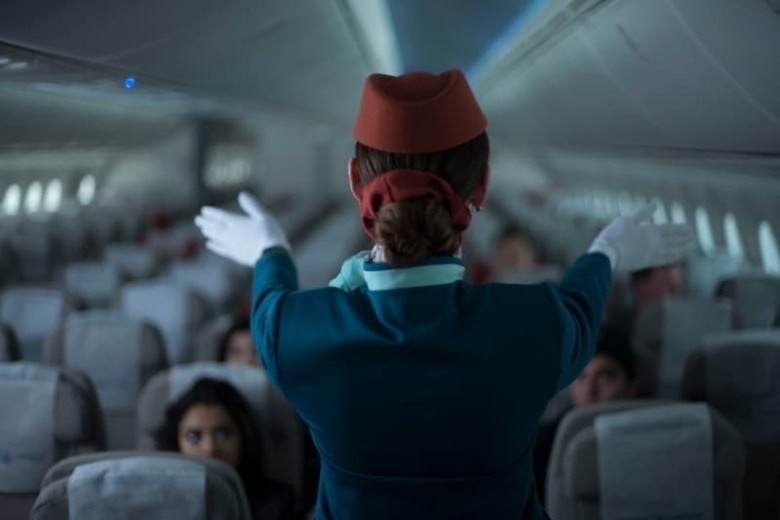
In this evolving landscape, cooperation between passengers and airlines is crucial. The industry must listen actively to passengers' concerns and make the necessary changes to foster a safe flying experience. As this dialogue continues, both travelers and airlines can contribute to a cleaner, healthier future of air travel, ensuring that every journey is marked by comfort, safety, and well-being.












Comments
0 comment